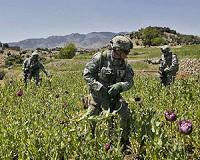| . |  |
. |
United Nations (AFP) July 28, 2010 The UN General Assembly on Wednesday recognized access to clean water and sanitation as a human right, a move hailed by water advocates as a momentous step toward a future treaty. After more than 15 years of contentious debate on the issue, 122 countries voted in favor of a compromise Bolivian resolution enshrining the right, while the United States, Britain, Canada, Australia and 37 other nations abstained. The non-binding text "declares the right to safe and clean drinking water and sanitation as a human right that is essential for the full enjoyment of the right to life." It expresses deep concern that 884 million people lack access to safe drinking water and that more 2.6 billion do not have access to basic sanitation. It notes that roughly two million people die every year from diseases caused by unsafe water and sanitation, most of them small children. And it points to the pledge made by world leaders in 2000 as part of the poverty-reduction Millennium Development Goals (MDGs) to reduce by half, by 2015, the proportion of people without sustainable access to safe drinking water and sanitation. The resolution urges states and international organizations to provide financial and technological assistance to help developing countries "scale up efforts to provide safe, clean, accessible and affordable water and sanitation for all." "This is a historic day for the world, a big step in the right direction" toward the distant goal of a water treaty, Canada's leading water activist Maude Barlow told AFP. "It is going to mean a huge amount to our movement around the world, to local community groups fighting for water rights, water justice against governments, corporations which are not respecting their rights." Barlow, a former senior adviser to the UN General Assembly on the water issue, said some wealthy countries abstained out of fear "that they are going to be asked to pay the price tag" or that the resolution would give "tools to their own people to use against them." She welcomed the fact that major countries such as China, Russia, Germany, France, Spain and Brazil backed the resolution. Of her country's abstention, she said: "We are terribly disappointed." She said Canada's conservative government wants the right to sell water. "They know that if they say it is a human right it will be a contradiction to want to turn it into a commodity," she added. The resolution also welcomes the Geneva-based UN Human Rights Council's request that Portugal's Catarina de Albuquerque, the UN Independent Expert on human rights obligations related to access to safe drinking water, report annually to the General Assembly as well. De Albuquerque's report is to focus on the key challenges to achieving the right to safe and clean drinking water and sanitation, as well as on progress towards the relevant MDGs. Germany's UN Ambassador Peter Wittig also hailed the resolution, although he said he would have preferred language with "a clearer message on the primary responsibility of states to ensure the realization of human rights for all those living under their jurisdiction." And he disagreed with those member states that voiced concern about the impact of the resolution on the Geneva process led by de Albuquerque. "We see the resolution as a complement to the ongoing process on water and sanitation in Geneva," he noted.
Share This Article With Planet Earth
Related Links Water News - Science, Technology and Politics
 Afghans yearn for water, security in Taliban heartland
Afghans yearn for water, security in Taliban heartlandPanjwayi District, Afghanistan (AFP) July 26, 2010 Leading a patrol of Canadian soldiers, Sergeant Patrick Hogan inspects a deep well used to irrigate a patchwork of fields on the edge of the desert in southern Afghanistan. "It's good to be nosey," he said. "We've got to know what's normal because what's normal to them isn't necessarily normal to us." An Afghan farmer had risked being shot the previous night after the reconnaissance ... read more |
|
| The content herein, unless otherwise known to be public domain, are Copyright 1995-2010 - SpaceDaily. AFP and UPI Wire Stories are copyright Agence France-Presse and United Press International. ESA Portal Reports are copyright European Space Agency. All NASA sourced material is public domain. Additional copyrights may apply in whole or part to other bona fide parties. Advertising does not imply endorsement,agreement or approval of any opinions, statements or information provided by SpaceDaily on any Web page published or hosted by SpaceDaily. Privacy Statement |